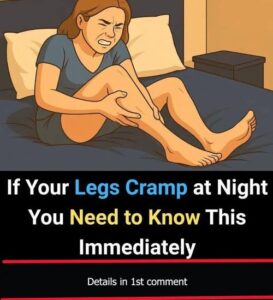Who Faces the Highest Risk of Nighttime Muscle Cramps?

Night cramps—those sudden, sharp muscle contractions that strike while you’re asleep—can happen to anyone. But some groups are more prone than others, often due to age, lifestyle, physical activity, or underlying health conditions. Knowing who is most at risk can make it easier to prevent and manage these painful nighttime interruptions.
Older Adults
People over 60 are the most frequent sufferers. In fact, nearly one in three older adults deal with recurring night cramps. Age-related changes like reduced flexibility in muscles, slower nerve signaling, and weaker circulation—particularly in the legs and feet—make cramping more likely when the body is at rest.
Pregnant Women
Expectant mothers commonly experience leg cramps, especially in the later months of pregnancy. The extra weight places stress on leg muscles, while hormonal shifts may upset the body’s electrolyte balance. Pressure on veins and altered blood flow also play a role, turning nighttime cramps into a familiar discomfort during pregnancy.
Athletes and Active Individuals
Even those in peak physical condition aren’t spared. Intense exercise, dehydration, or insufficient recovery can leave muscles overworked and vulnerable. Heavy sweating reduces important electrolytes like potassium and magnesium, both of which are essential for smooth muscle function. Without proper stretching and hydration, athletes may find themselves waking up in pain.
People with Sedentary Lifestyles
On the flip side, inactivity can be just as risky. Sitting at a desk or standing for long periods restricts circulation, causing muscles to tighten. Office workers and retail employees often notice cramps at night if they don’t take breaks to move and stretch throughout the day.
Those with Health Conditions
Certain medical issues increase the likelihood of night cramps. Diabetes, thyroid problems, peripheral artery disease, and kidney disorders can all interfere with circulation and electrolyte balance. In these cases, cramps may signal an underlying condition that requires medical attention.
Medication Users
Some prescription drugs can also trigger cramping. Diuretics, cholesterol-lowering medicines, and hormonal contraceptives are among the most common culprits. If cramps start soon after beginning a new medication, a doctor’s input is important.